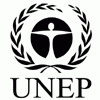Community / Land projects / Global coordination project for the SFM Drylands Impact Program
Global coordination project for the SFM Drylands Impact Program

€6645946.548
09/21 - 12/26
Activo
This project is part of
Implementing Organisations
Donors
Data Providers
Objectives
To maximize the effectiveness, efficiency and sustainability of GEF-7 investments in sustainable drylands management to achieve Land Degradation Neutrality
Other
Note: Disbursement data provided is cumulative and covers disbursement made by the project Agency.
Target Groups
1. As is the case with global environmental benefits and gender, the GCP will serve to amplify the delivery of socioeconomic benefits by the child projects that constitute the programme through: - The coordination of efforts among projects and partipating countries in order to realize the potential for synergies, and avoid duplication, conflicts or impact leakages. - Facilitate participating countries’ access to knowledge and technical assistance, and the exchange of knowledge among countries (IP and non-IP) on options for reconciling the delivery of global environmental benefits with socioeconomic benefits (including win-win options where the socioeconomic benefits actively support the achievement of GEBs, and vice versa). - Facilitating access to policy support through COFO WG on Dryland and UNCCD.11. Livelihoods, Employment, and responding to the global health challenges. 1. The GCP will facilitate efforts by child projects, through technical assistance and knowledge resources, to improve their effectiveness in contributing to improved livelihoods, employment, and responding to health challenges such as COVID-19, HIV/AIDS and malaria. Issues of particular relevance in relation to the DSL IP include the following: - Most poor people in drylands depend on agriculture, which is typically characterized by precarious and poorly-remunerated jobs. - Degradation, desertification, and deforestation of land and ecosystems in drylands lead to increasing difficulties to produce and secure a dignified income from agricultural work. - Youth in particular (especially young women) face additional disadvantages in accessing productive and gainful jobs, due to their limited access to productive resources, including land and credit, as well as markets and organizations. The impacts of climate and environmental change may affect access to decent jobs for youth, especially in the agriculture sectors where the great majority of jobs are water-dependent. - Lack of jobs and deteriorating environmental conditions often result in youth migration. This is particularly true in drylands, where migration is closely linked to environmental stresses and is often used as a way to adapt to environmental and climate changes. - Early removal from school to put children into child labour responds to a functional and economic dependency of farmers facing desertification and the loss of their resources. This situation can trap children and youth in a vicious cycle of hunger and poverty.- At the time of submission, the response to the COVID-19 emergency in IP countries was in the process of being developed and implemented. The GCP will facilitate efforts of country projects to work with national government counterparts to ensure wherever possible that IP investments are supporting the resilience of food systems, value chains, and the employment associated with this. 2. Interventions under the IP, which will be supported by the GCP, recognise that revitalising rural economies and actively promoting productive employment and decent work in rural areas is crucial to improve food security and reduce inequalities and poverty while also promoting safe, regular and orderly migration for the development of rural areas. Decent jobs are opportunities for work that are productive, respect core labour standards, provide a fair income (whether through self-employment or wage labour) and ensure equal treatment for all: workers should be able to perform their tasks under safe and healthy conditions and have a voice in the workplace. Through the IP, the sustainable management and restoration of landscapes, and the improvement of natural resource management and rural livelihoods, could address some of the adverse drivers of migration by improving the well-being and resilience of local populations, especially youth. As noted above, this will also include facilitating the efforts of national government counterparts to respond to the COVID-19 crisis in their countries in ways which support collaboration between IP participants and outreach to neighboring countries.3. The GCP will allow child projects to tap into the particular contributions that FAO is able to make in relation to decent rural employment. In order to provide specific guidance to help improve outcomes for livelihoods and employment through country project and GCP interventions, the Decent Rural Employment Toolbox has been designed to provide assistance to policy makers and planners, rural development practitioners and FAO staff at country level on how to systemize and scale up ongoing efforts to promote decent employment in rural areas[1]. [1] Specific guidance on how FAO can promote the Four Pillars of Decent Work in rural areas is provided in the Quick reference for addressing decent rural employment (as well as in the full corresponding Guidance document). For more information on FAO’s work on decent rural employment and related guidance materials please consult the FAO thematic website at: http://www.fao.org/rural-employment/en/.




